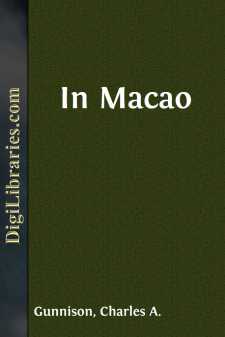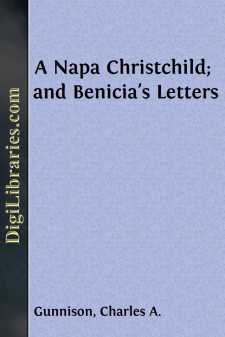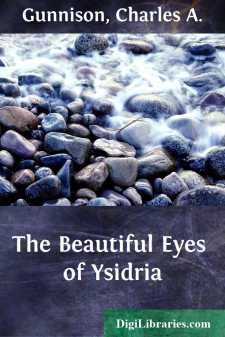Categories
- Antiques & Collectibles 13
- Architecture 36
- Art 48
- Bibles 22
- Biography & Autobiography 816
- Body, Mind & Spirit 145
- Business & Economics 28
- Children's Books 17
- Children's Fiction 14
- Computers 4
- Cooking 94
- Crafts & Hobbies 4
- Drama 346
- Education 58
- Family & Relationships 59
- Fiction 11834
- Foreign Language Study 3
- Games 19
- Gardening 17
- Health & Fitness 34
- History 1378
- House & Home 1
- Humor 147
- Juvenile Fiction 1873
- Juvenile Nonfiction 202
- Language Arts & Disciplines 89
- Law 16
- Literary Collections 686
- Literary Criticism 179
- Mathematics 13
- Medical 41
- Music 40
- Nature 179
- Non-Classifiable 1768
- Performing Arts 7
- Periodicals 1453
- Philosophy 66
- Photography 2
- Poetry 897
- Political Science 203
- Psychology 45
- Reference 154
- Religion 516
- Science 126
- Self-Help 85
- Social Science 82
- Sports & Recreation 34
- Study Aids 3
- Technology & Engineering 59
- Transportation 23
- Travel 463
- True Crime 29
Our website is made possible by displaying online advertisements to our visitors.
Please consider supporting us by disabling your ad blocker.
In Macao
Description:
Excerpt
In Macao.
A Story from the "Grasshopper's Library."
I was seated one pleasant day in the garden, which was given to the city of Macao by the Marcos family, near the grotto sacred to the poet Camoens, when a Portuguese priest came from among the wilderness of flowers and sat beside me. He spoke English with a pleasant accent and we read Bowring's effusion together, as it is engraved on the marble slab nearby. Scarcely had we finished, and the father was telling me of Goa in India, when my uncle Robert came from beneath the great banyan tree and stood before us. The father jumped to his feet, and throwing back his brown robe, rushed forward toward my uncle with a stilletto held ready for an upward stroke. Quickly my uncle drew a revolver and fired—and the father fell dead at my feet.
To those who have been in Southern Europe and have seen the towns along the Riviera, the first view of Macao, as the steamboat approaches from Hong Kong, gives the impression of having been suddenly transported to the sunny Mediterranean. Were it not for the colour of the water, and the Chinese junks, Macao would indeed be a perfect representation of any of those lovely spots, as she lies along her crescent bay, from Mount Nillau to Mount Charil, defended by the frowning forts of Sam Francisco and Our Lady of Bom Parto. Beautiful as this picture is, it was doubly so in the brilliant sunset colouring of a certain March day, as the steamer slowly came to her wharf and the passengers stepped ashore beneath the blue and white flag of Portugal, in this, her farthest eastern possession. The houses with their delicate washings of pink, blue, yellow or green, with white stucco ornaments, now golden in the light, had a warmth of colouring well set off by the dark foliage of camphor and banyan trees showing above the garden walls. The few passengers soon dispersed, in chairs or on foot, leaving but one of their number upon the wharf. He was apparently expecting some one to come for him, for he refused all offers of assistance from the coolies and seated himself just outside the gate. American, of medium height, brown haired and tanned by a tropical sun, Robert Adams was as good a specimen of Anglo Saxon youth as England herself could boast of. He was the last descendant of a New England family, which had preserved its purity for three centuries as unmixed with continental blood as though the three centuries had been passed in the quiet vales of Devon, instead of in the New World with its broken barriers.
For three years, after a successful college course, he had been in the only shipping house in Hong Kong which sickly American commerce of the day was able to support in the once flourishing China trade. A small fortune and a good salary, a constitution which even an Eastern summer could not break down, and above all, the heart of the girl he loved, were surely possessions which any king might envy him. Presently a neat bamboo chair borne by three liveried coolies came at a trot down the street, and being placed before this last of the passengers, carried him away into the darkness which, with the suddenness of the tropics, had fallen upon the city. The stillness was broken only by the noise of escaping steam from the boat and the regular patter of the barefooted chair carriers. When the chair had disappeared up the narrow, winding street, a Portuguese wrapped in a black cloak came from behind a wall, then by another way walked rapidly over the hill and down the other side to the Praya, arriving in front of one of the largest houses on that most beautiful promenade just as the coolies put down their burden.
The oil lamps along the Praya had been lighted, stretching out to the Estrada Sam Francisco, where the bright windows in the hospital of Sam Januarius seemed to be the lake of lights into which this long stream flowed....




